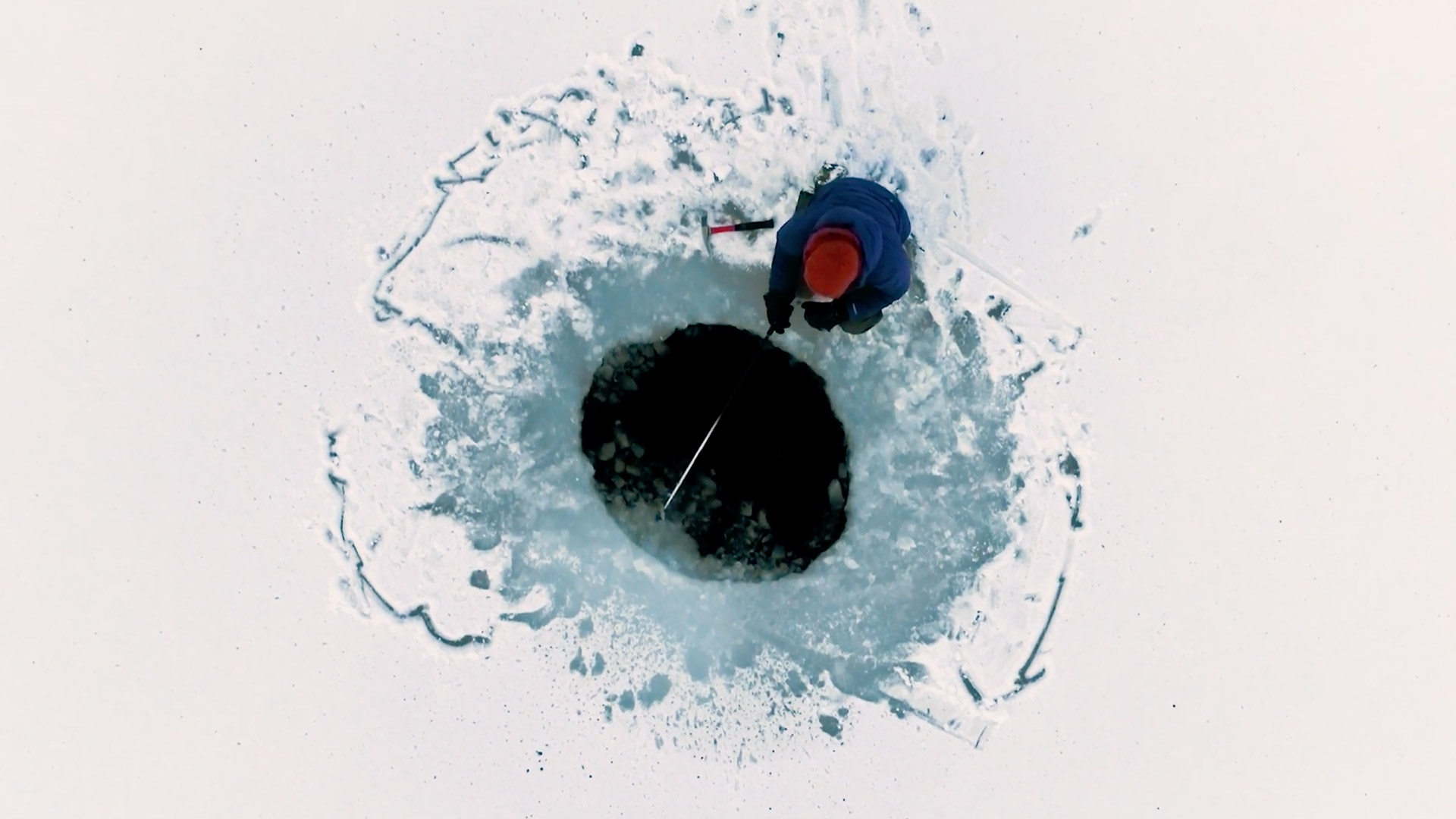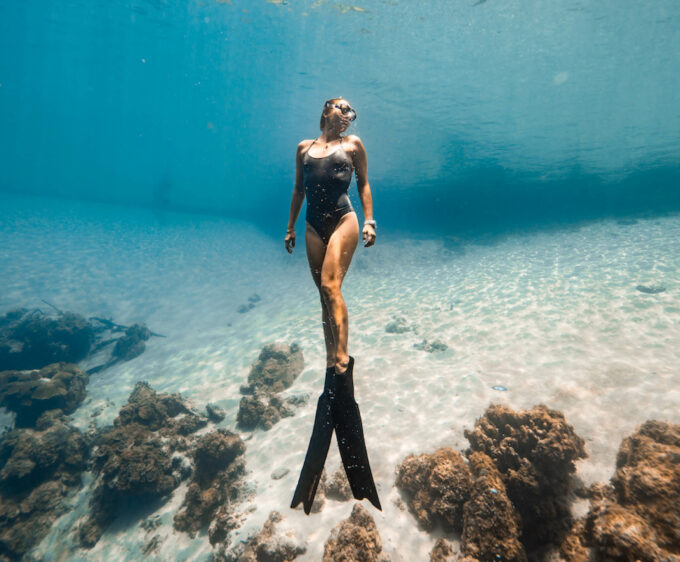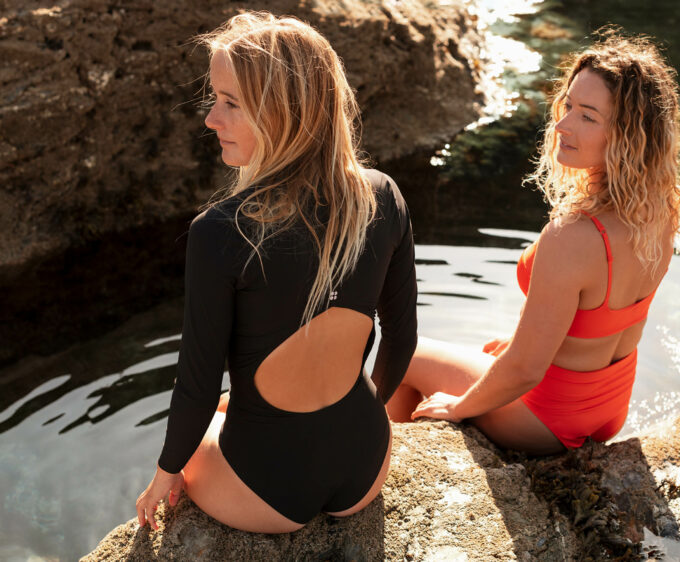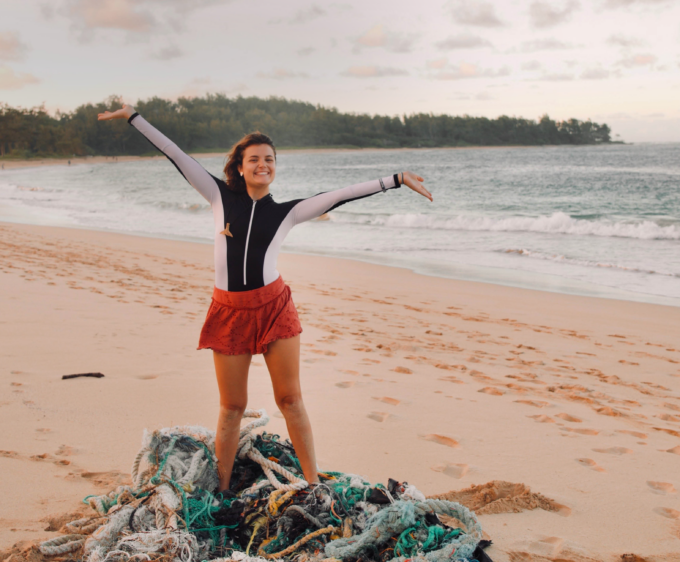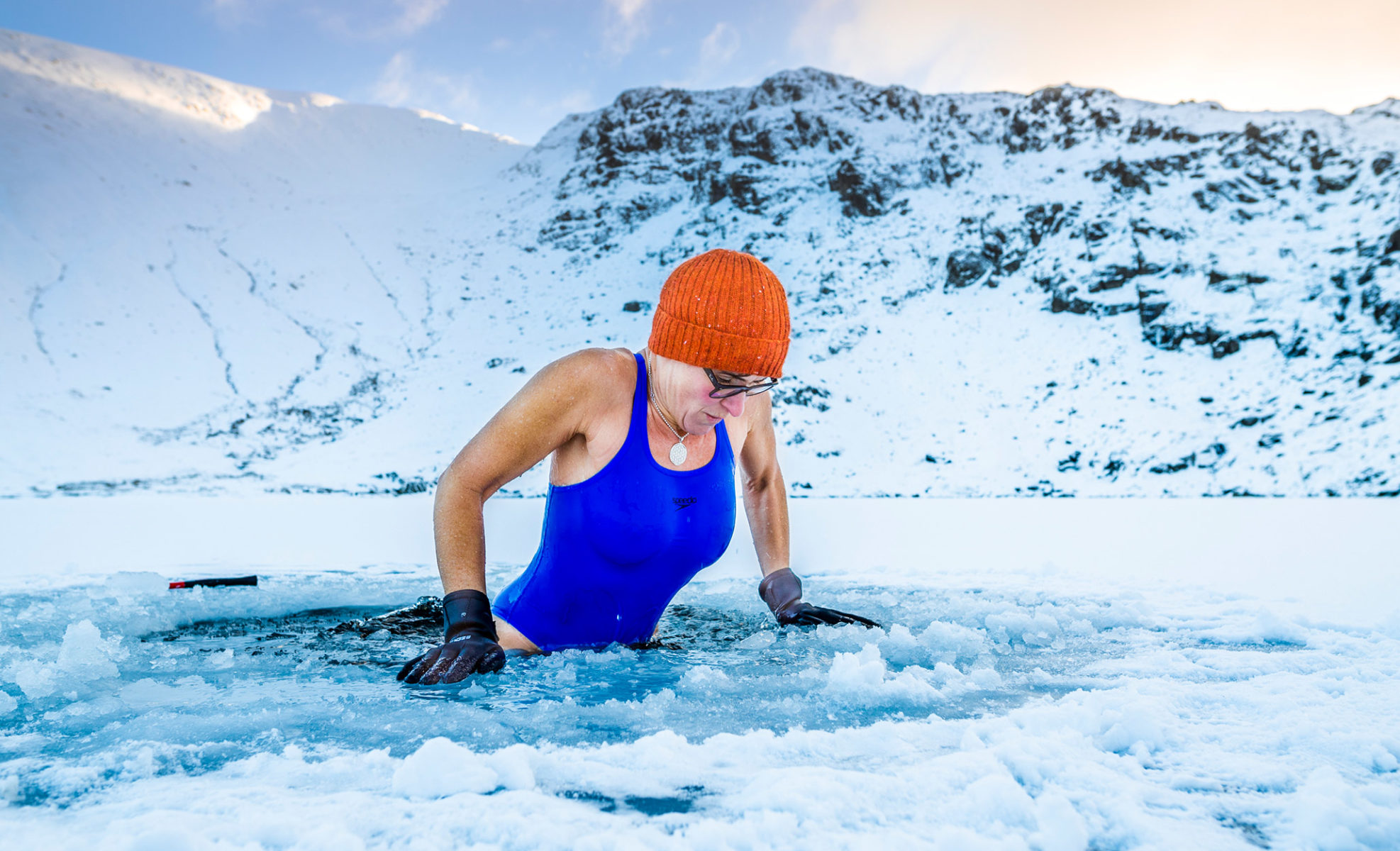
Ocean: Gilly McArthur
We explore the experiences and insights of open water swimmer Gilly McArthur and gain a greater understanding of the transformative power of water and the urgent need to protect our oceans, rivers, and lakes for future generations
By Glorious
Photography by Scott Salt
Growing up in the northeast of Scotland, Gilly McArthur’s love for the outdoors and her curiosity led her to explore the exhilarating world of open water swimming. From the vast ocean to the tranquil lakes and rivers, every swim for Gilly presents a unique and captivating encounter. We chat to her about how a deep connection to the water has not only enriched her life but has also inspired her to promote the benefits of water for mental health and general wellbeing through her coaching work. She also understands the irreversible consequences of neglecting the environment and advocates for action, encouraging people to be mindful of their impact and take steps to preserve our precious ecosystems.
Glorious: What initially sparked your interest in open water swimming and the ocean?
Gilly McArthur: I grew up in the northeast of Scotland, and as a child, I spent a lot of time outdoors, playing in the sea, rivers, forests, and hills. As an adult, when I moved to the Lake District from Bristol, I started exploring swimming in open waters, and with over 200 bodies of freshwater in the Lake District, this provided me with lots of opportunities!
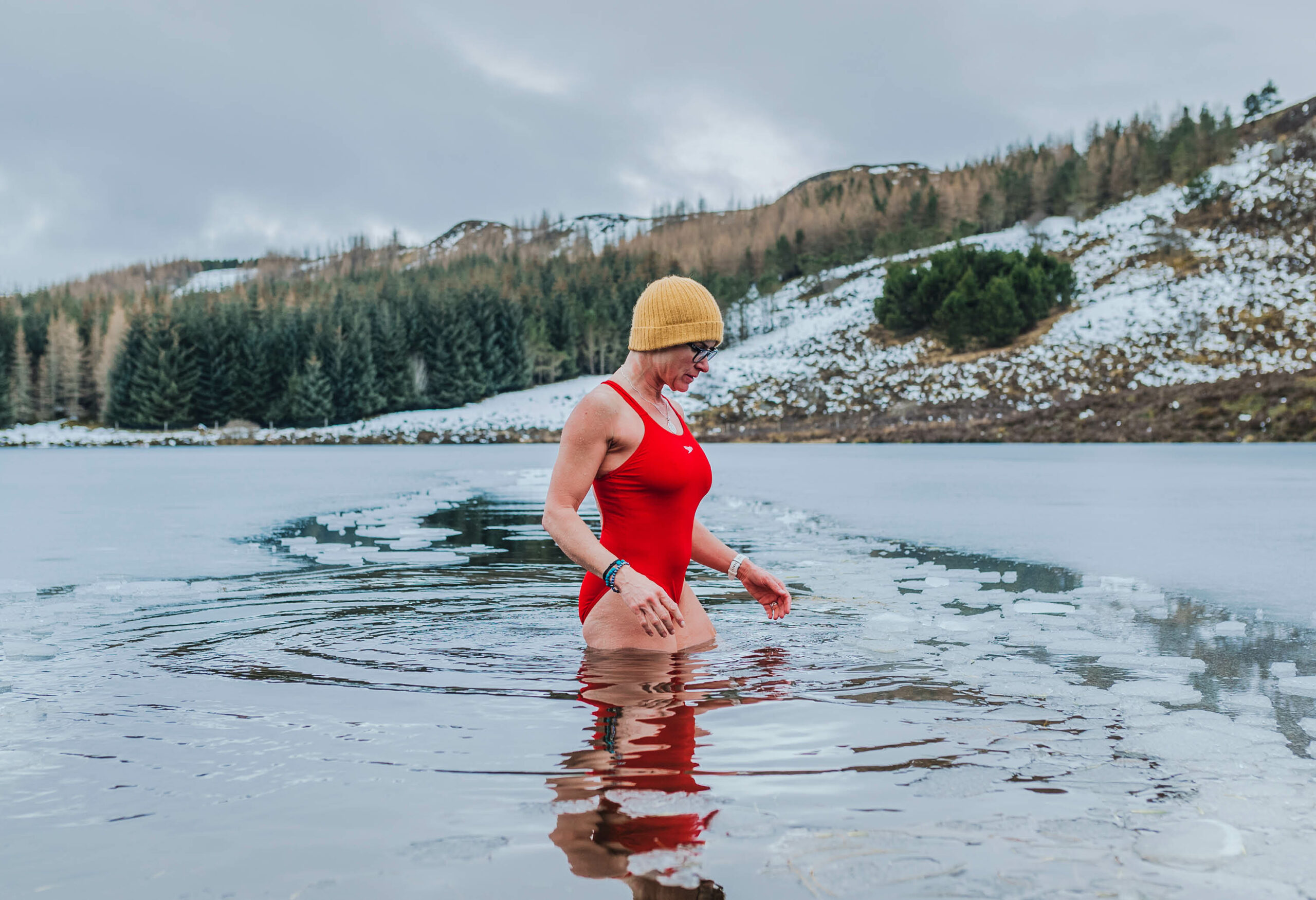
Glorious: How has open water swimming impacted your connection with nature and the environment, and how does it make you feel?
Gilly McArthur: One of the things I love about open water swimming is that every time I enter the water, it’s a completely different experience. This holds true whether I’m swimming in the ocean or inland lakes and rivers. The weather, temperature, and the patterns and paths of nature vary daily and I find it fascinating to witness these changes.
In winter, the environment can be stark and dark, and needs a keen observation to notice the subtle differences. But in summer, its a joy to watch the landscape and waters spring back to bloom. This connection to the changing patterns of nature is what I find most impactful. It reminds us that we are part of something much larger than ourselves. Another aspect I appreciate is the sensation of being embraced by water. Considering that our bodies are about 80% water, returning to this natural state of being submerged in water is a powerful experience. There’s something profound about reconnecting with that. I’m sure my skin has become more permeable to water over the years, becoming more like water!
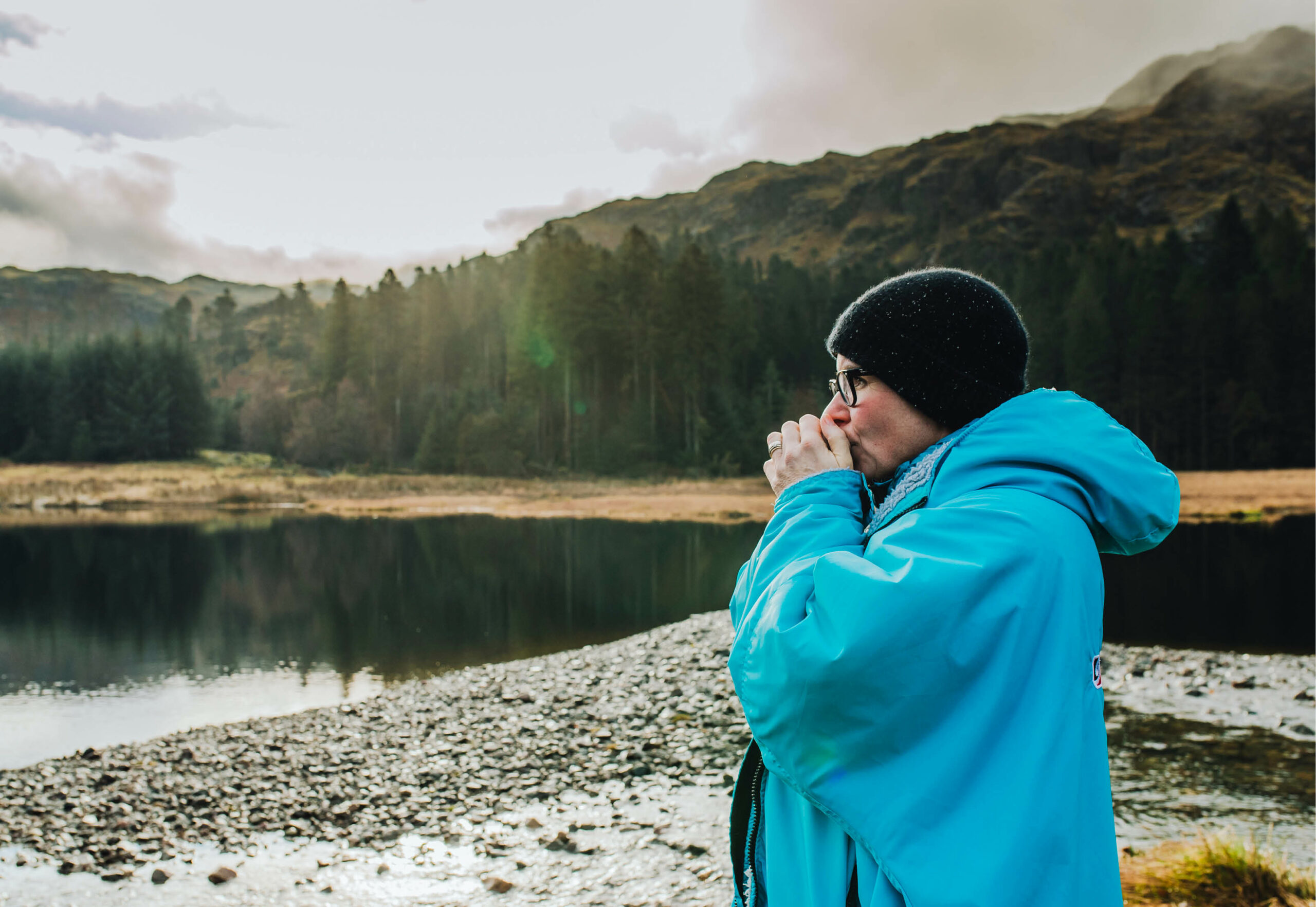
connection
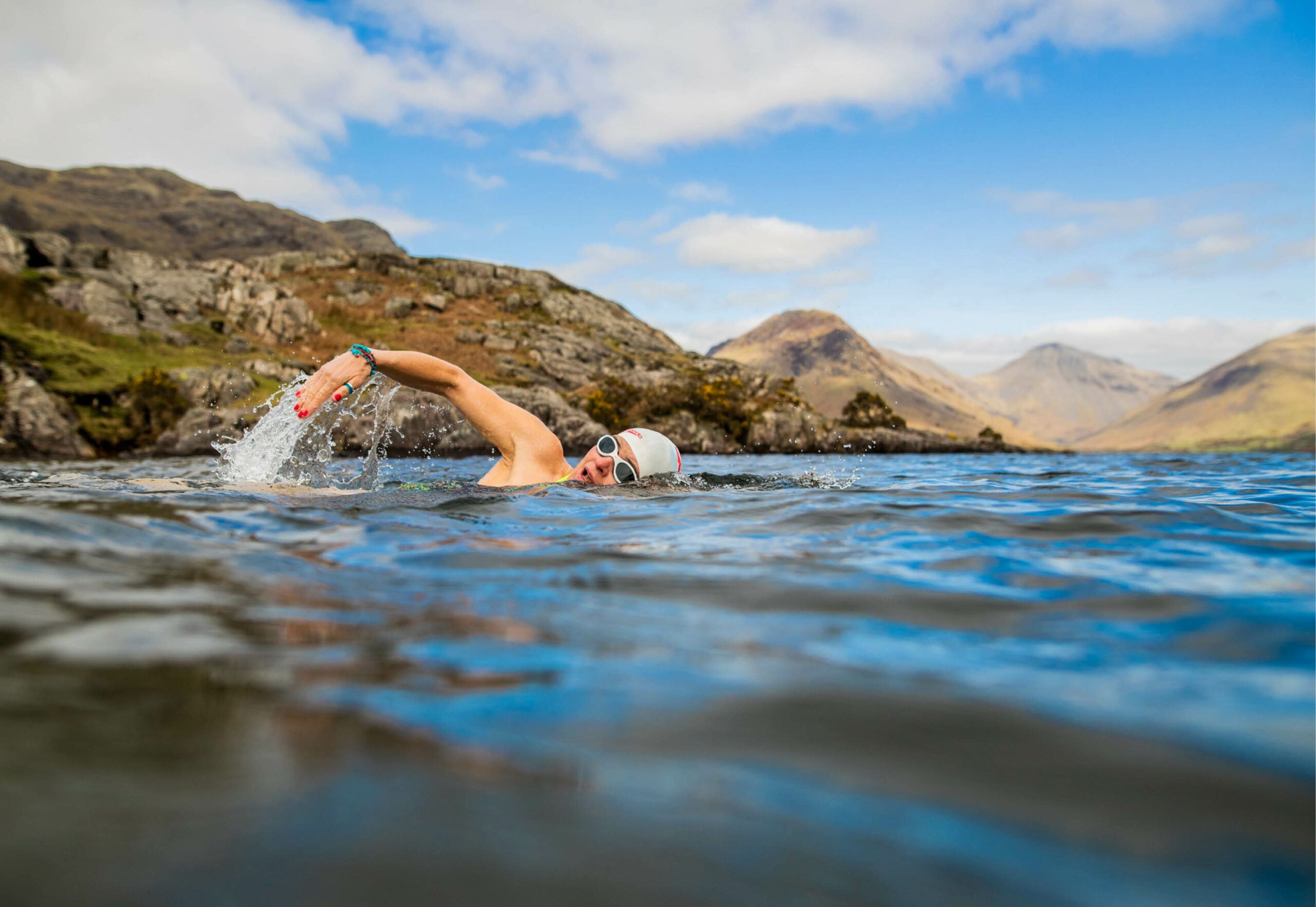
Glorious: Can you tell us about your work that promotes the benefits of water and how it helps towards mental health and general wellbeing.
Gilly McArthur: My coaching work involves individual one-on-one sessions or group activities with various organisations. its really varied these days – one day I might be collaborating with a small mental health charity and the next day coaching high level executive groups into the joys of the cold water. I also worked with yoga retreats, write and present to groups on the power of the water for well-being.
I’m so grateful for each person who has trusted me to help them find their place in water. It’s incredible to witness the impact of introducing individuals, who may have never engaged with water before, to the sensation of water on their skin. It’s as if it rekindles something within them, reminding them that they are part of something greater. Simply feeling the water on our skin can re-establish a primal connection. Cold water swimming has been proven in recent years to have positive effects on depression, anxiety, circulation, and potentially preventing conditions like type two diabetes and dementia. There are numerous free resources available to us that can contribute to our wellbeing.
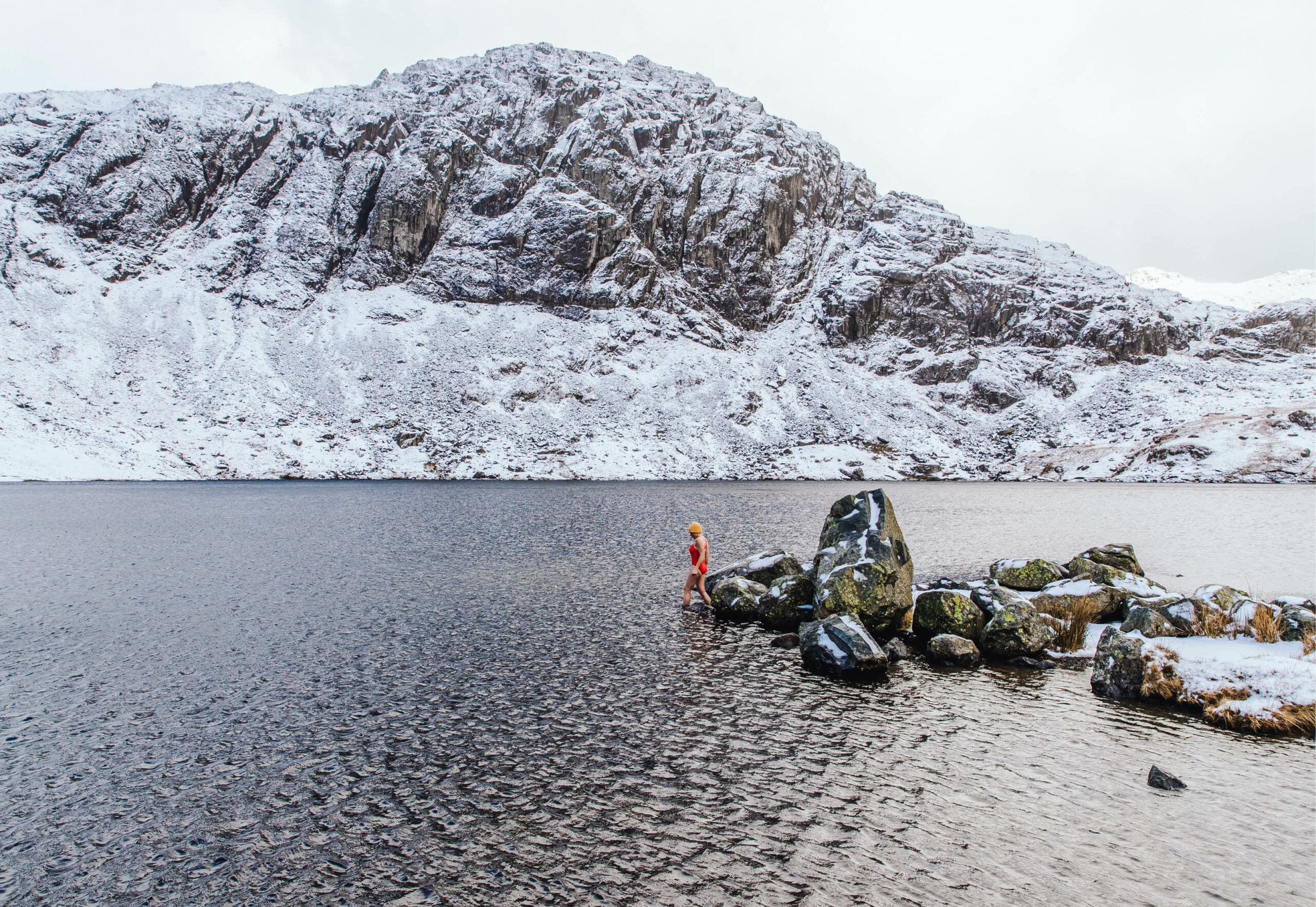
Glorious: What lessons have you learned from open water swimming that you’ve applied to other areas of your life?
Gilly McArthur: One significant lesson I’ve learned is that life consists of ups and downs, and it’s crucial not to expect constant happiness or stability. Just like open water swimming, where conditions can vary from flat calm to wild and stormy, life has its own ebbs and flows. By understanding that we are part of a larger system, we can reflect on these patterns in ourselves. When things are going well, it’s important to fully embrace those moments! Similarly, during challenging times, we need to adjust our sails and find enjoyment where we can. The connection to something bigger helps us navigate through life’s highs and lows.
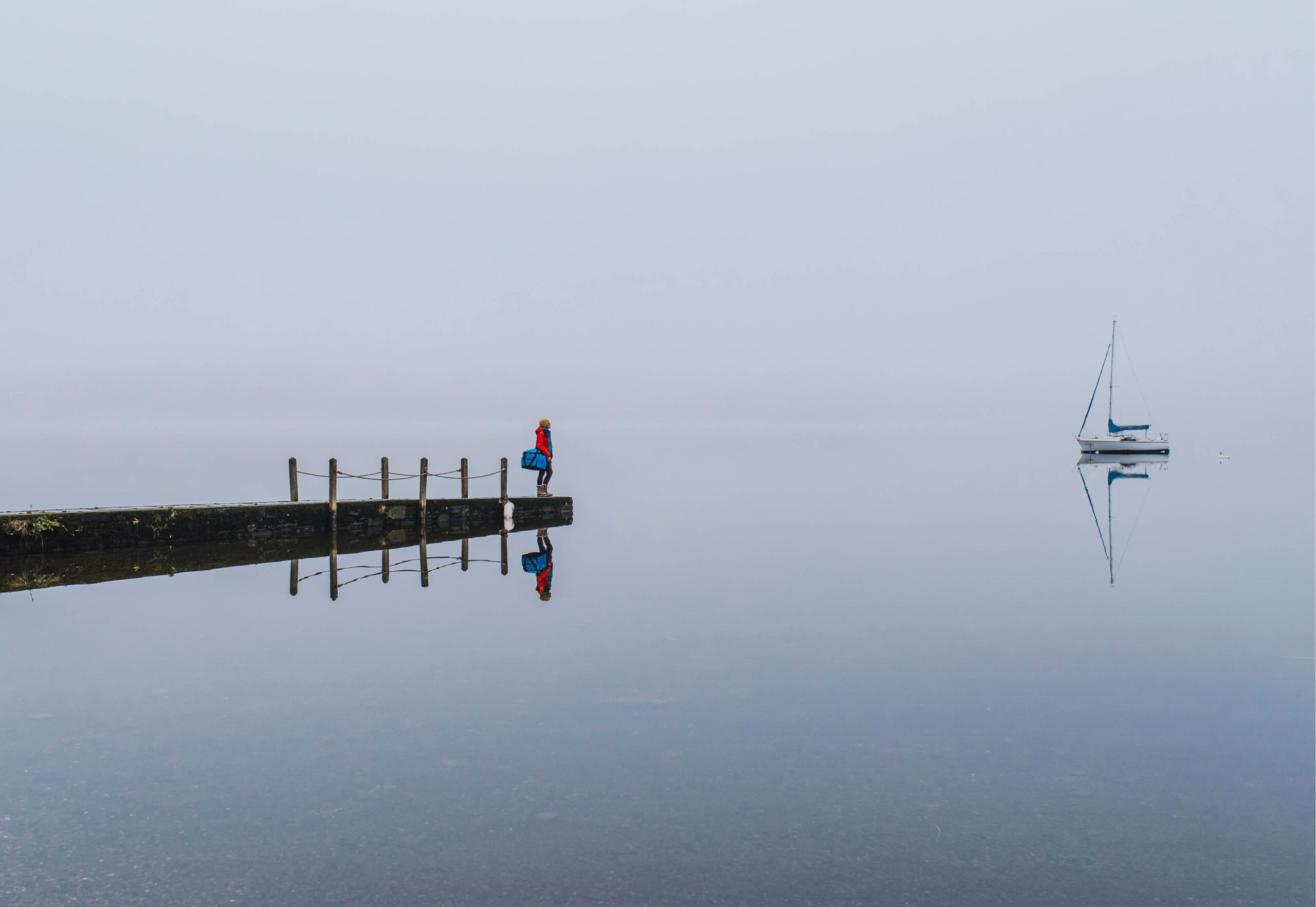
RESILIENCE
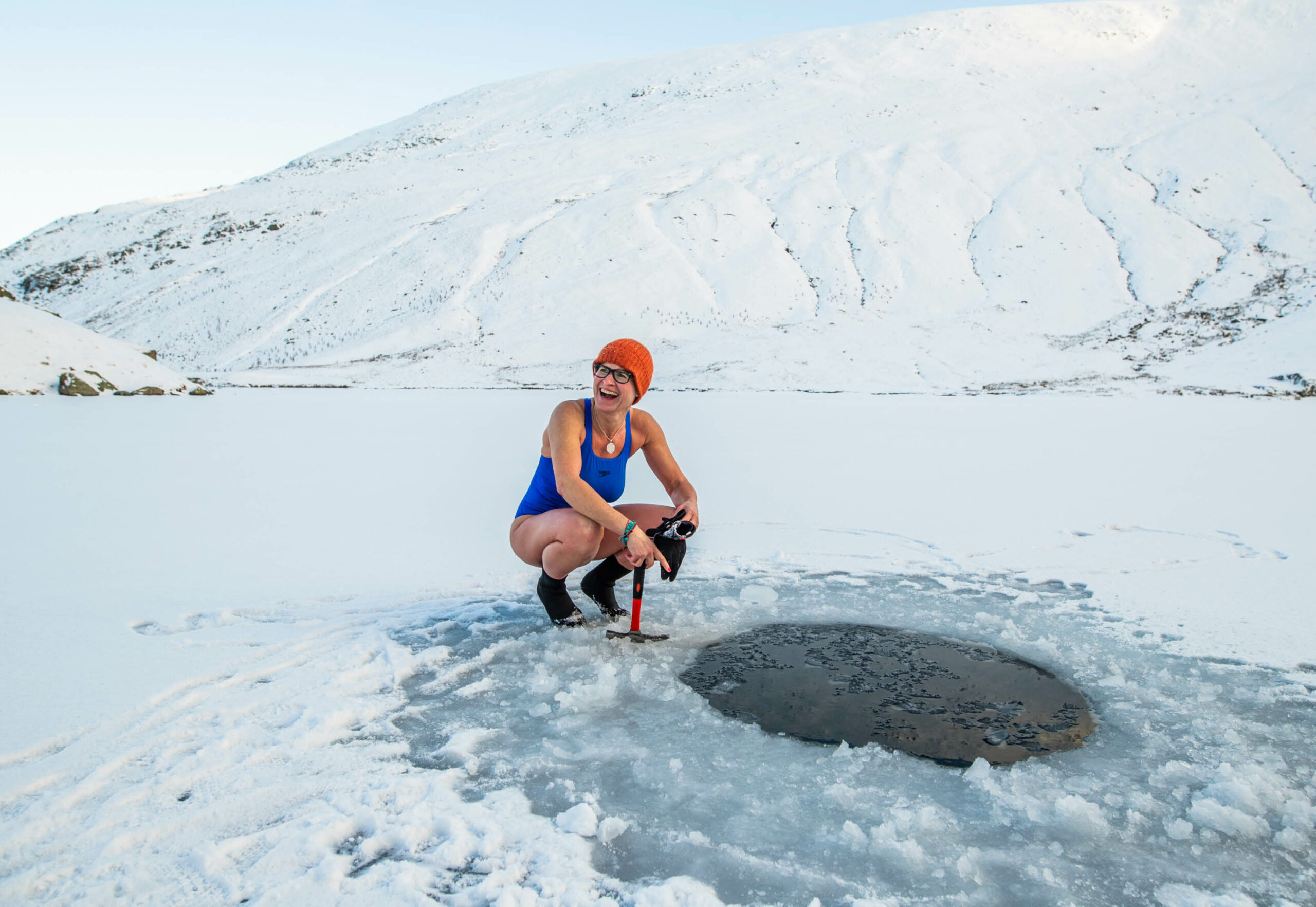
Glorious: We’ve seen images of you hacking through ice to swim, so this must take a lot of resilience that can also transfer into your everyday life?
Gilly McArthur: The self knows that getting into cold water and getting past the initial shock allows you to build resilience. It trains your brain to tackle challenging tasks, making them easier over time. It’s always quite hard, but you retrain your brain to accept the difficulty. People often think I don’t feel cold any more, but I still do! Every time – most cold water swimmers I know certainly still feel cold, they just care less about it! That realisation applies to other areas of life as well. So, the ice bit is definitely a part of it, but it doesn’t necessarily have to be ice; it can just be cold water.
Eustress is the stress we put ourselves under willingly, and it’s slightly different from, let’s say, from my other sport – rock climbing. Personally, I had a fear of falling in rock climbing after breaking my back in an accident. It took time to overcome that fear and be bold again. What I noticed from my winter swimming experience is that the fear of falling and failing in rock climbing disappeared. Cold water allowed me to be comfortable with being uncomfortable. We are not accustomed to being uncomfortable nowadays, our life’s are, in many ways, generally pretty comfortable – heated homes, warmth, fast food, instant gratification… the cold teaches us a lot that we can take to other areas for a great benefit.
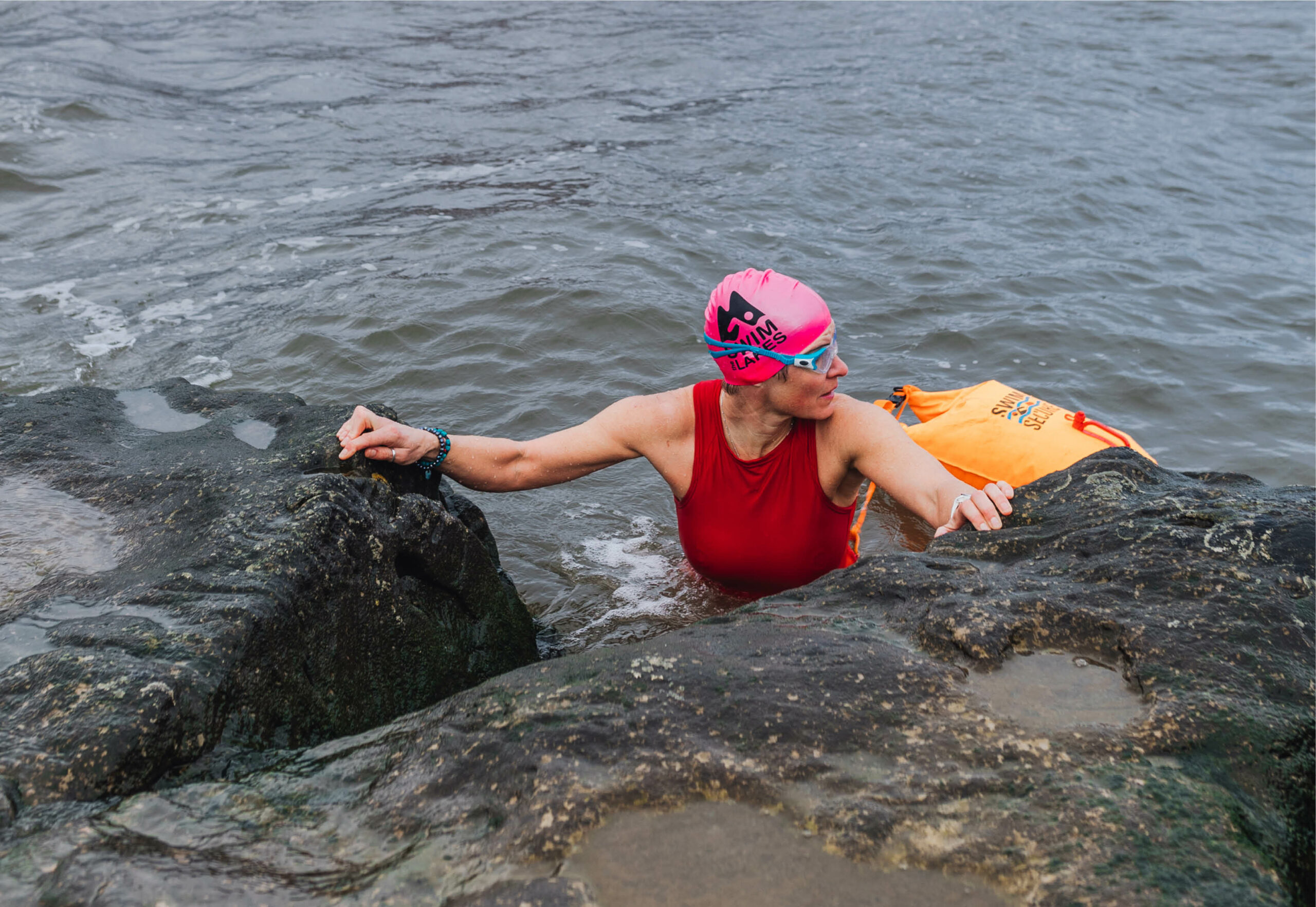

Glorious: How has open water swimming influenced your perspective on the importance of preserving our oceans, rivers and lakes?
Gilly McArthur: I think that the the rivers are the blood to our landscape and the oceans the worlds heart. What we seem to be forgetting far too readily is that once something is gone, it’s gone, and we still don’t fully comprehend that. I have witnessed bodies of water I swam in ten years ago become depleted in quality. Even if we stopped pollution in all its ways right now, it would take a long time for them to recover. It’s similar to global warming. We can all play our part, but people often feel impotent and blame others like the government, or water companies (which is totally fair!) But everyone can do a little bit more individually.
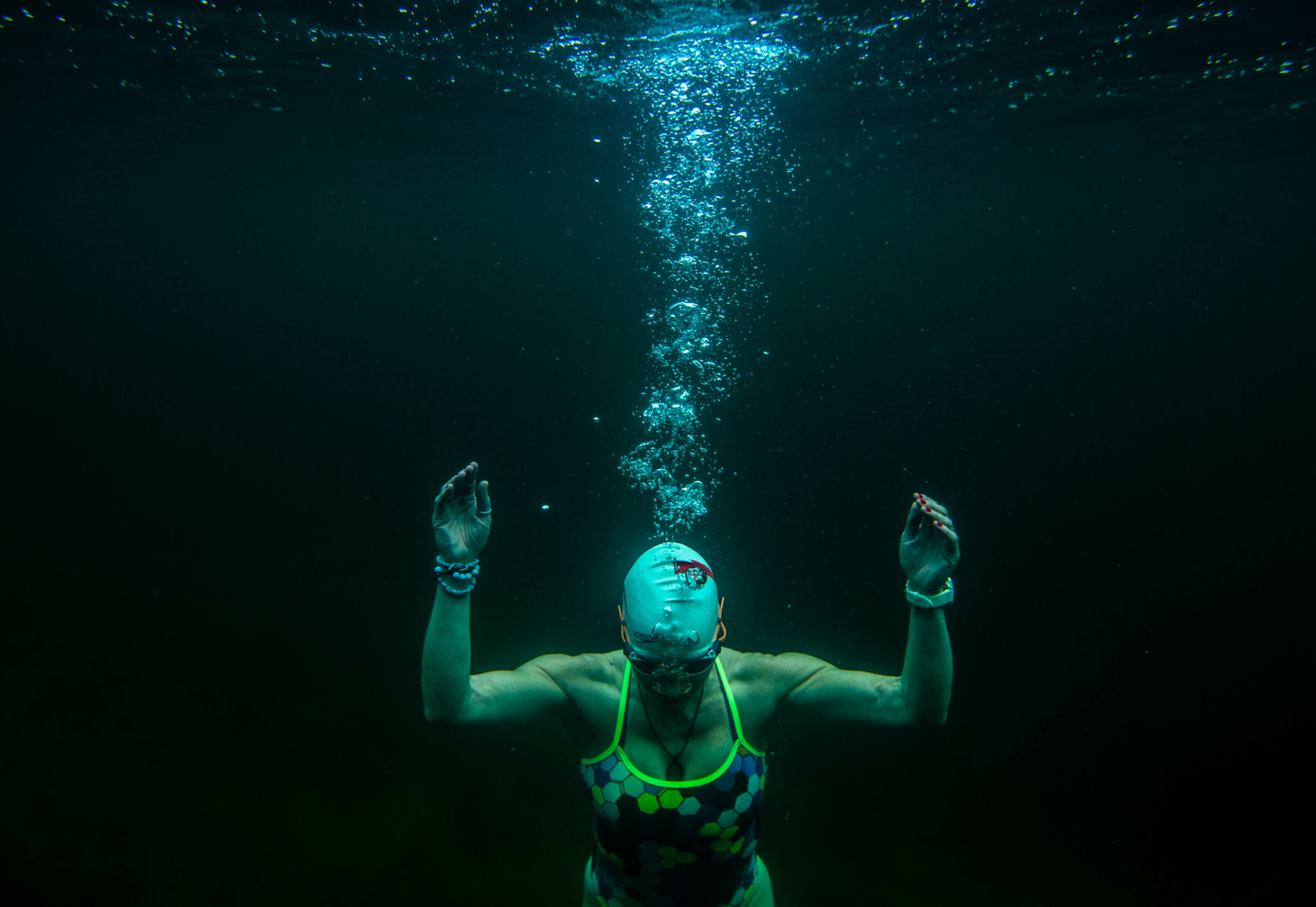
Glorious: What steps do you take to minimise your impact on the marine environment, and what can other people do?
Gilly McArthur: In the Lake District, there is a men’s cold water swim group I set up and every Sunday we do a shore clean-up. The women’s groups I’m part of do the same. We sweep the disabled access ramp to the water, litter pick the shore and encourage other swimmers and water users to care for their shorelines too. In the lakes, we have a problem with phosphorus, so even changing dishwasher tablets to phosphorus-free ones could make a difference, and these are small actions that everyone can do. Education has increased in the last five years, especially with more people visiting bodies of water since the lockdown, but people need to be aware of the impact they have and take steps to preserve these environments, such as not swimming in rivers with fish spawning grounds or checking and cleaning gear to prevent the spread of invasive species. It all helps our wildlife.
Other small changes on a personal level can make a huge difference too – like buying Yulex instead of Neoprene wetsuits, supporting brands who actually make decent kit and have a solid and authentic environmental strategy, so you only buy once and buy well… and wear an ocean friendly sun protector on your skin. Our oceans will love us if we all played our small part!
Glorious: Can you describe your most memorable swims that, for you, best highlight the beauty and significance of the marine environment?
Gilly McArthur: I’ve had so many amazing swims, but there are two that really stand out for me. One of them was in St. Kilda, an island, about 100 kilometres off the west coast of Scotland. It’s just a tiny island like a piece of grit in what feels like the middle of the Atlantic. It’s difficult to access due to conditions and I sailed there last year. It’s a wild and magical place and the waters are incredible. We swam into vast sea caves and discovered small beaches with otter tracks, it was absolutely sublime.
Another swim that stands out was at a place called Fingal’s Cave on the island of Staffa. My husband and I got the boat over, we got into the cave, plunged into the water, swam to the back of the cave, and then out again, looking up at the amazing basalt columns, it was like being in a cathedral. It’s here that composer Mendelssohn was inspired to write his overture, The Hebrides.
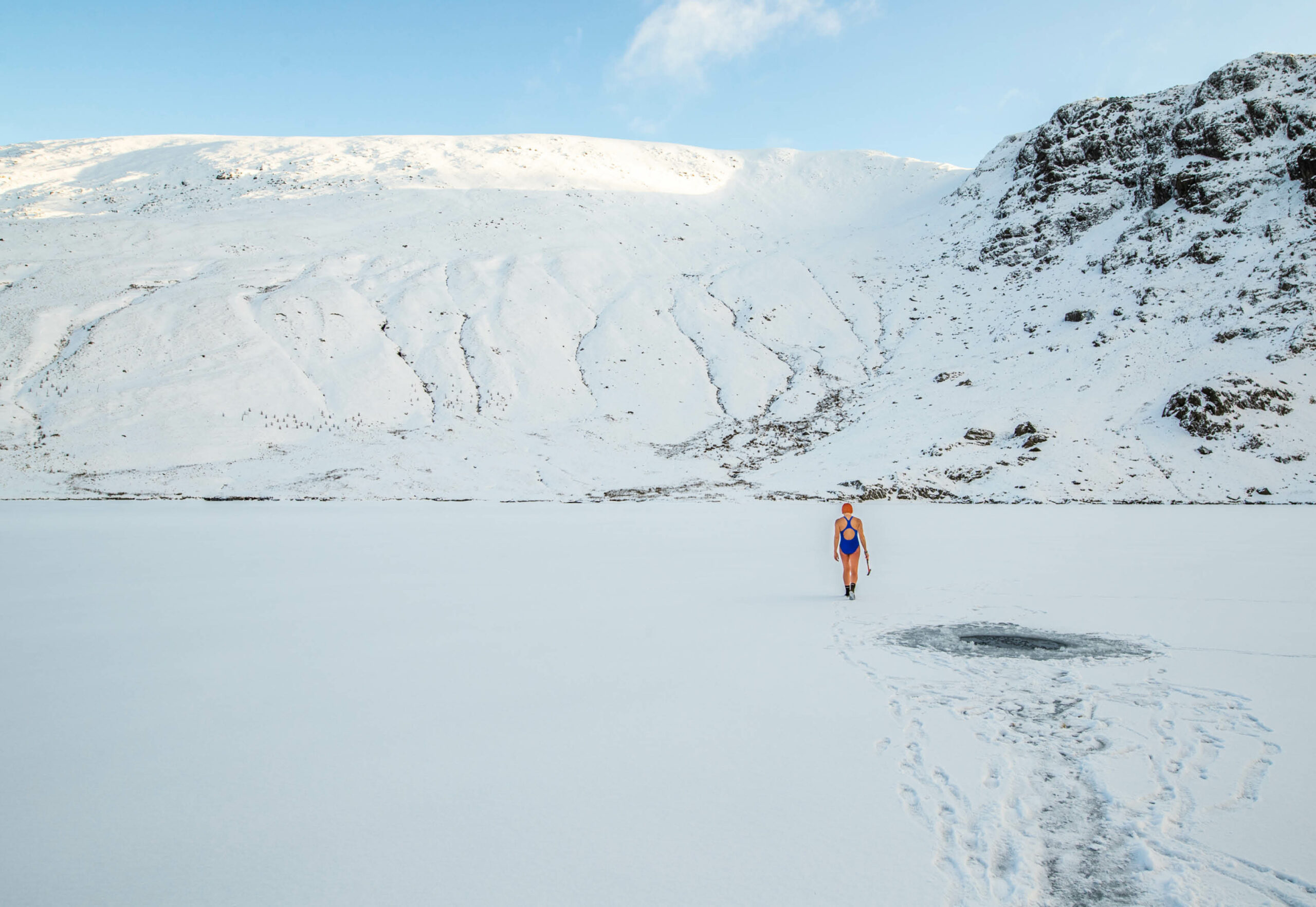
Glorious: What advice would you give to someone who wants to try open water swimming and is also inspired to preserve the ocean?
Gilly McArthur: The best advice is to join a group who know what they are doing – there are loads across the UK! Definitely give it a try, but also be aware that not all beaches around the UK are suitable for swimming. It’s important to fully understand the conditions and where you’re going. By joining a group, you can learn from more experienced individuals and gain knowledge about tides, rip currents, and other safety considerations. There are brilliant resources too like the Surfers Against Sewage charity and Outdoor Swimming Society who do amazing work across the UK
Respecting the environments we play in is important for me. I spend a fair bit of time during my introduction sessions discussing this. I emphasise the importance of leaving places better than you found them, avoiding certain areas, and minimising our impact as much as possible. However, I’m not certain if all larger companies share this mindset. If you’re going to hire someone or join a group, I recommend inquiring about their practices, It’s crucial for us to tread delicately on the margins of water and be mindful of our actions. While many people are likely doing their part, I believe there’s room for improvement, especially in inland bodies of water.
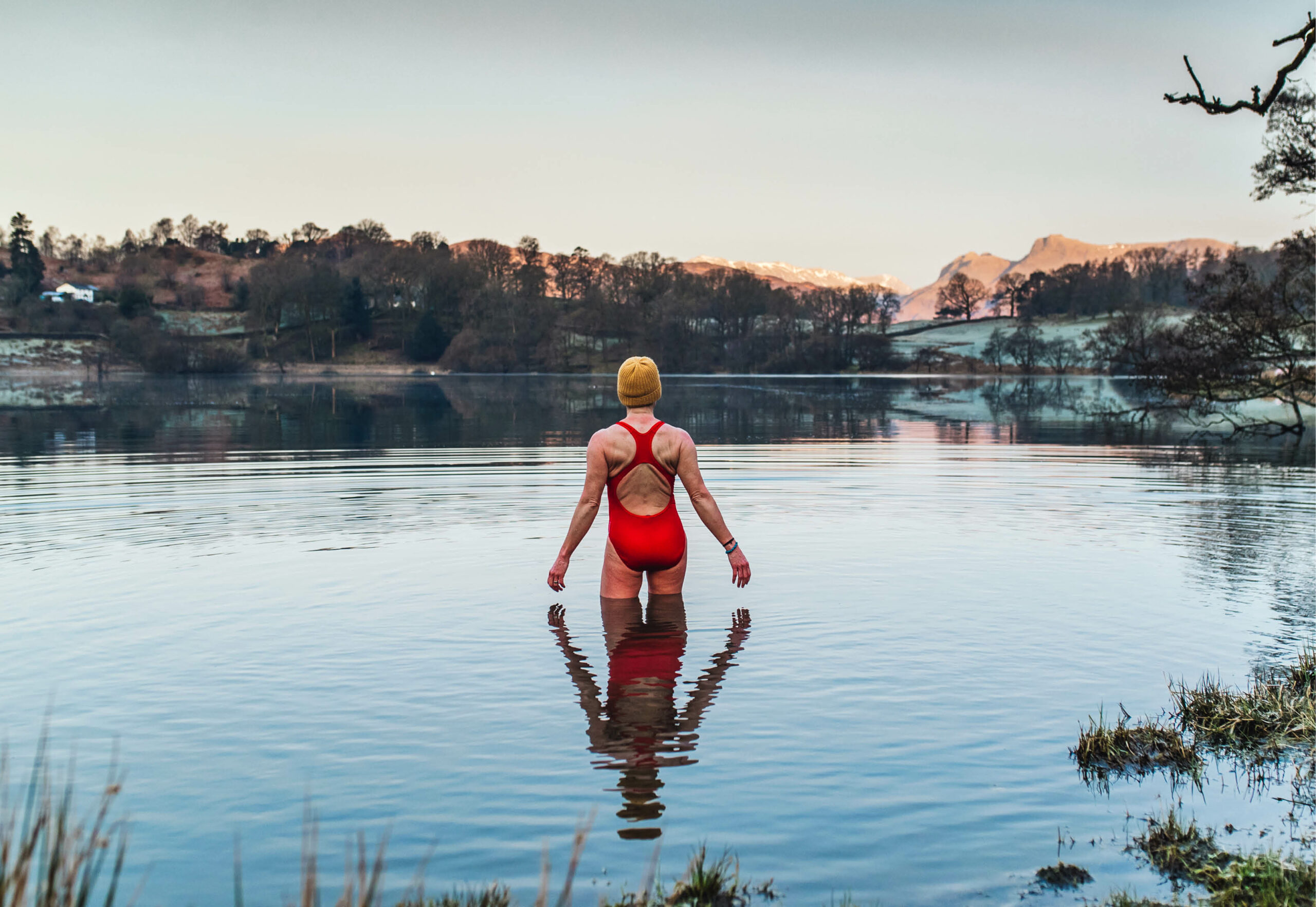
Glorious: What’s next for Gilly McArthur?
Gilly McArthur: I’m excited to share that my film, “Body of Water,” is now available on Water Bear, a platform similar to Netflix but focused on environmental films. It’s a wonderful platform that features short and long films highlighting various aspects of water, preserving landscapes, and has a host of really inspiring films. Next week I’m attending a conference in Brighton. I’ll be joining academics and professionals working in the field to discuss the power of water for wellbeing.
We’ll explore how water is used for personal and professional wellbeing and aim to bridge the gap between academic research and practical implementation. The conference brings together representatives from many amazing charities and research institutes across the uk. It’s an opportunity to advocate for the outdoors and water while considering the practical aspects alongside academic knowledge. We might even have a swim too! After that it’s more corporate work and a slow slide towards the winter again – and a chance to catch up with my good pals who I share my cold water world with.
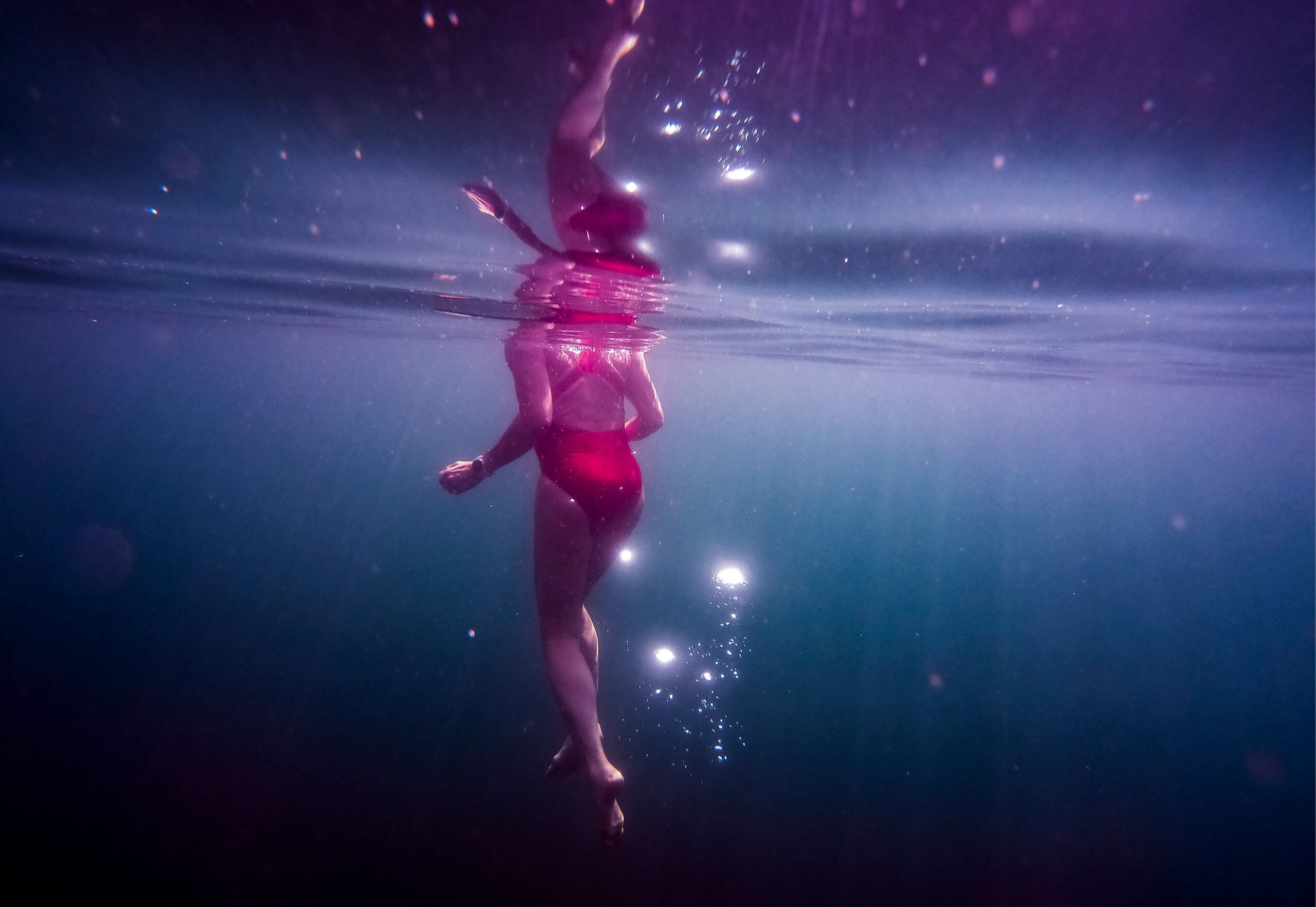
Editorial Design This Is Root
Title image by Scott Salt – The iconic Forth Rail bridge in Scotland, close to Gilly’s birthplace
